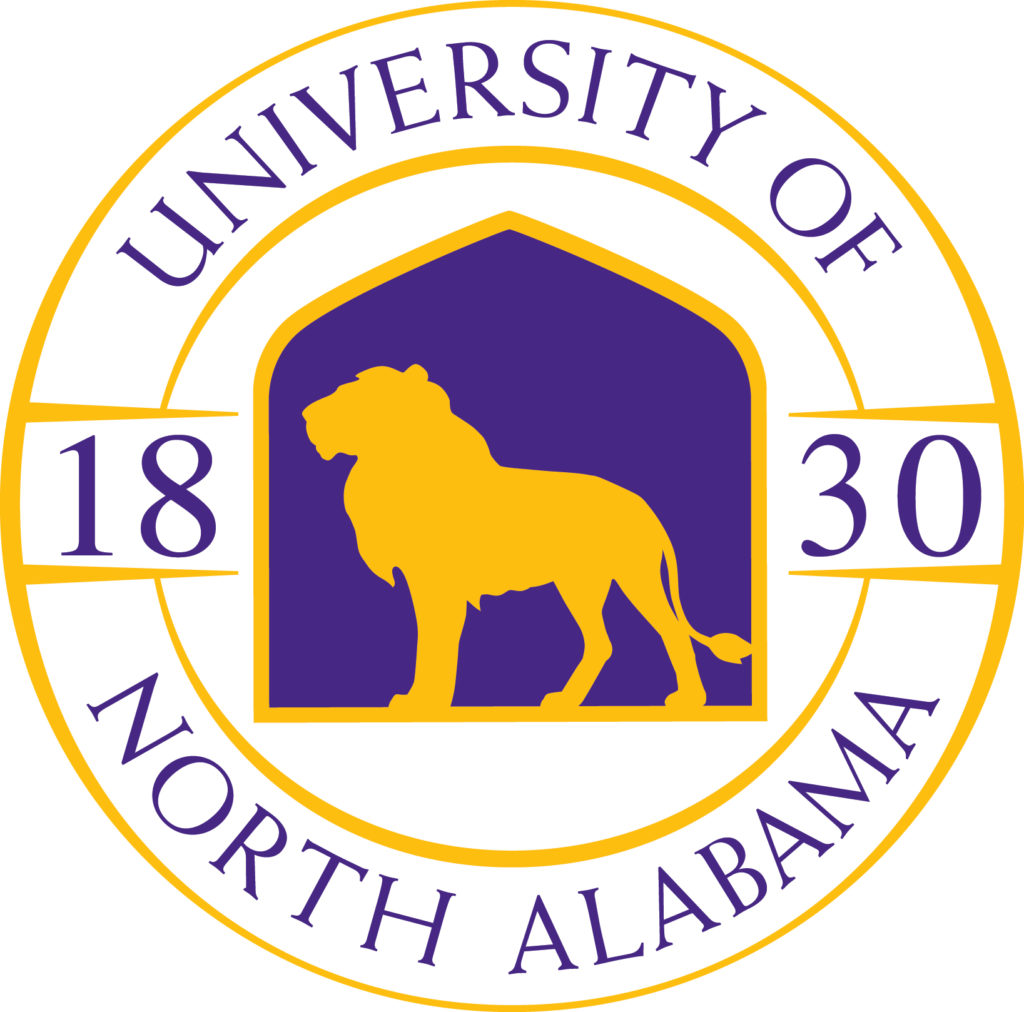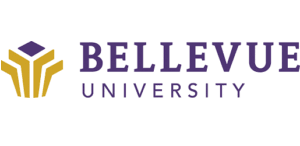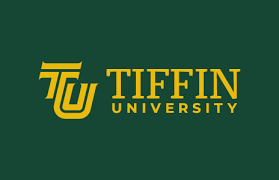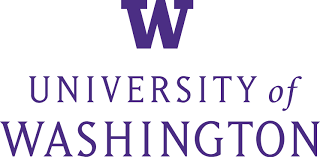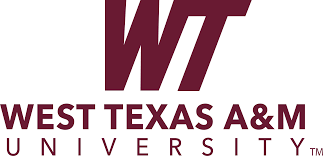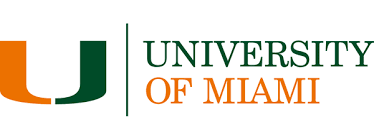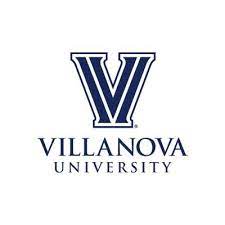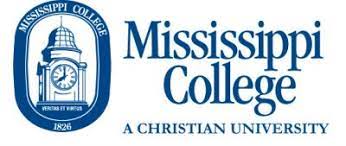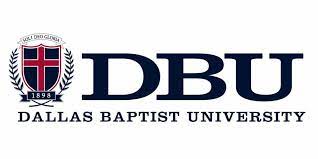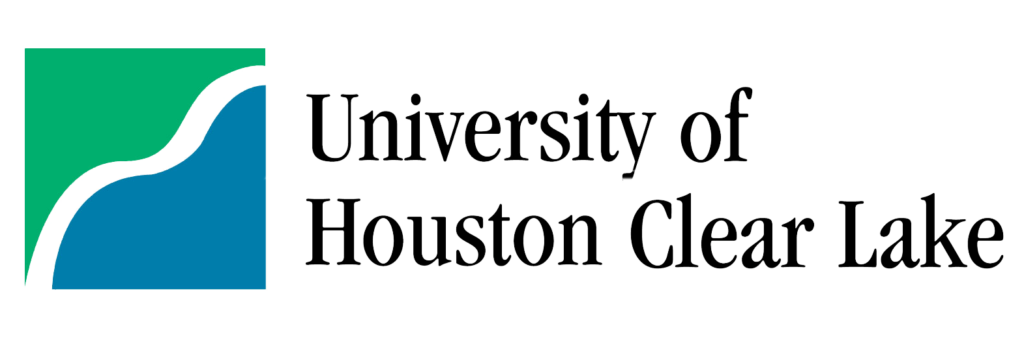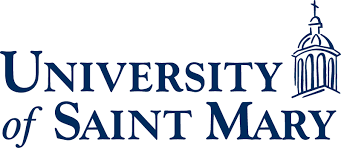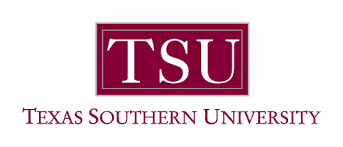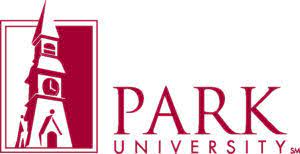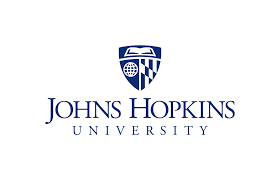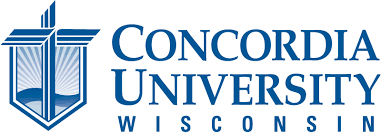Ready to find your ideal master's program?
www.mastersprogramsguide.com is an advertising-supported site. Featured or trusted partner programs and all school search, finder, or match results are for schools that compensate us. This compensation does not influence our school rankings, resource guides, or other editorially-independent information published on this site.
Picture this: You’re sipping coffee on your bed. You’re dressed in your most comfortable pajamas. And you’re learning the complex rules of taxation and financing!
Sounds like a dream, doesn’t it? Welcome to the world of online education! You can pursue a Master of Finance degree in the comfort of your own home.
There is no denying that higher education is an expensive affair these days. But pursuing an online master of finance can help you save much of your hard-earned money. And you’ll still be receiving top-notch education.
The realm of finance is both broad and deep. There are many career paths that you can take with a Finance Degree.
A Master’s in Finance (or MBA with a Certificate or Emphasis in Finance) can open many doors.
It should be no surprise that this master online finance program earned a spot in our ranking of the most popular online Master’s degrees.
What is an Online Master’s in Finance?
You can’t ignore the fact that obtaining a Master of Finance is an excellent way to advance your career. Incorporating online distance learning into this equation is an absolute no-brainer.
But what will you cover in your classes? Let’s take a closer look at some common classes so you can get a better idea of what to expect.
Courses You Will Take
A financial management program often includes a few core subjects. You’ll find these topics as part of a core finance curriculum:
- Financial markets
- Financial analysis
- Social responsibility in wealth management
- Financial accounting
- Asset and income measurement
- Financial accounting theory
- Financial health of large corporations
- Asset management
- Financial and investment analysis
- Overview of fixed income securities and other financial assets
- Portfolio management
- Financial modeling
- Corporate investments
- Business valuation
- Capital structure
- Mergers and acquisitions
- Economic theory
You may also be able to specialize in various fields within the finance industry. These might include financial theory, management information systems, managerial finance, and financial research. For most of these programs, you can choose elective finance courses. These match your career goals and interests.
You will also develop effective communication skills, critical skills, and technical skills in your foundational coursework. These can help you with career advancement in unrelated fields. With a business degree, you’ll have valuable skills that translate well to any position.
What Can You Do With an Online Master’s in Finance?
Successful completion of a finance degreewill allow you to pursue a variety of careers. You’ll also gain valuable professional contacts to help you land a job.
Potential Job Titles for Graduates
Some popular positions for graduates include:
- Financial managers
- Corporate financial managers
- Chartered financial analyst
- Security analysis and investment valuation
- Chief financial officer
- Corporate cash manager
- Bank management
- Stock market investing
The long and short of it is this. A master’s in finance will prepare you for any kind of career in the job market that has to do with dollars and cents! Some of the best online master’s degrees on this list also provide students with the foundational courses they need to sit for important certification exams.
See Also: 10 Best Economics MBA Programs
Admission Requirements for an Online Master’s in Finance Program
Let’s discuss the required materials for a master’s in finance. In general, you must submit transcripts from your undergraduate degree from an accredited institution, letters of recommendation, and a personal statement.
The application fee varies depending on the school but oftenfalls between $50-$200.
Live out of state? Research the different state’s higher education policies and tuition rates. Some schools offer a tuition waiver or in-state rates for online courses. Be sure to ask about this option to lower your tuition costs.
Some schools have test score requirements such as the Graduate Record Examination (GRE). Others may not. Make sure to research the school’s score requirements before submitting your application.
Financial aid options are also available for those who qualify. Graduate students are eligible for various financial aid options. These include scholarships, grants, and loans. Contact your school’s financial aid office for more information about your eligibility.
To apply, you will need to complete an online application form. Some schools may need you take partate in an interview process.
Program requirements for a master’s in finance program differ, again, in each school. Some schools offer an accelerated program. Others offer courses at a slower pace. Research the program requirements. Choose one that best suits your schedule.
Online programs cater to a wide range of students. Students who work full-time or are parents can take advantage of online courses. Part-time students can complete the program within two years, unlike traditional programs that usually require a minimum of three years.
Many master’s in finance programs for aspiring financial managers often have smaller class sizes. This allows for more individualized attention from professors. Unlike traditional liberal arts programs, online programs emphasize hands-on experience. This prepares students better for the workforce.
This program is a professional degree. This means graduates are more prepared for a career in finance.
Let’s get started with our list of the best masters in finance programs!
See Also: 30 Best Affordable Master’s in Economics
30 Best Online Master in Finance Degrees
30. University of North Alabama
MBA in Finance
The University of North Alabama has a Master of Business Administration with a concentration in Finance.
This online masters finance degree is accredited by the prestigious AACSB (Association to Advance Collegiate Schools of Business). UNA offers students the opportunity to earn their MBA from a ranked program for less than $15,500. The program is taught by professors who bring real world experience into the classroom. Students enjoy their research and experience in solving real world business problems.
There are no prerequisites required. The program starts with a self-paced foundation course. It can begin immediately following registration.
29. The University of St. Francis
MBA in Finance
The University of St. Francis has a Master of Business Administration with a concentration in Finance. It is designed to offer maximum flexibility to busy students.
The MBA program exists both onsite and online. It takes just 12-18 months to complete. Students may begin taking courses right away in their chosen concentrations.
Required courses for the Finance concentration include:
- Entrepreneurship
- Small Business Finance
- Advanced Financial Management
- International Finance
- Derivatives Valuation
It is available through the University of St. Francis’ College of Business & Health Administration. The MBA program has accreditation from the ACBSP. This is the leading specialized accreditation association for business education.
28. Bellevue University
Master of Science in Strategic Finance
Bellevue University offers several online degree programs. These include its Master of Science in Strategic Finance degree. It is available both online or in-person. It includes courses that are designed to help students develop enterprise-wide financial decision-making skills. The program focuses on “the application of value optimization, enterprise risk management and business strategy for real-world situations.”
Students study various financial and business issues. They gain an understanding and perspective of the decisions managers and executives face when leading within their organization.
Graduates of the MS in Strategic Finance program may be able to earn a dual degree. This is with as little as 18 additional credits.
27. Colorado State University Global Campus
Master of Finance
Colorado State University-Global Campus has a Master of Finance degree. It is available 100% online. This online master of finance is designed for individuals looking to lead within the financial industry.
CSU-Global’s Master of Finance degree familiarizes students with “the latest technology and emerging business trends to create financial strategies, analyze financial risks and investments, and make effective decisions.”
The online finance masters degree develops leadership skills, operational skills, and international perspectives. The program focuses on career development and incorporates state-of-the-art nontraditional and emerging electronic formats.
There are several specializations in areas such as:
- Accounting
- Applied Business Management
- Fraud Management
26. Oklahoma Wesleyan University
MBA in Finance
Oklahoma Wesleyan University has a Master of Business Administration program. This is through its Adult & Graduate Studies department. It is available with several emphases, including Finance.
This finance degree is available at its Bartlesville campus or online. The program consists of 36 credit hours. This includes 36 hours of Core Business Curriculum and six hours of Core Concentration. There is also a Capstone course. This requires a passing grade of C- or better.
The MBA program is designed for experienced work professionals. It instills students the “appropriate knowledge, practical skills, and professional abilities necessary to fill executive managerial and administrative positions in business, government, and nonprofit organizations.”
25. Tiffin University
Master of Financial Management
Tiffin University has a Master of Business Administration. It has a concentration in Financial Management. The program is accredited by the Accreditation Council for Business Schools and Programs.
It offers students a solid foundation in business. It also gives them exposure to financial and economic business practices.
Studies explore the performance of stocks, bonds, commodities, and other types of investments. It prepares students for a career in financial management in corporate organizations. The program is available either on campus or online. It is offered in two 7-week terms per semester. These begin in January, March, May, July, August and October.
- Individual courses include:
- International Financial Management
- Investment Analysis
- International Finance Management
24. University of Washington
Master of Science in Computational Finance & Risk Management (CFRM)
The University of Washington has a number of online programs. These include a Master of Science in Computational Finance & Risk Management (CFRM). It is available through the Department of Professional & Continuing Education.
This online master’s program is eared toward students with strong quantitative and mathematical skills. The CFRM program offers opportunities for advancement in numerous financial fields.
It is available in both a full- and flexible part-time schedule. The program takes as little as 18 months or up to three years. It is available in both on-campus and online formats. Campus and online students are able to interact with one another via email, course discussion forums, and web conferencing.
23. Indiana University
Master of Science in Strategic Finance
Indiana University has a Master of Science in Strategic Finance through its online campus, IU Online.
This master finance online program focuses on the transactions between businesses and consumers as well as businesses and other businesses. The 30 credit hour program is online. That’s with the exception of an intense orientation week at the Bloomington campus.
22. University of La Verne
MBAX
The University of La Verne has a Master of Business Administration for Experienced Professionals (abbreviated MBAX). This is through its College of Business and Public Management.
The program is designed with the experienced working professional in mind. It is tailored for individuals with three years of experience who are interested in taking the next step forward to a leadership position.
This master’s degree is online and at several locations across Southern and Central California. The MBAX is available with eight concentration options, including:
- Accounting
- Finance
- Information technology
- International business
- Management and leadership
- Marketing
- Supply chain management
- Health services management.
21. Golden Gate University
Master of Science in Finance
Golden Gate University has a Master of Science in Finance. It is a “specialized, technical program.” It provides “in-depth exposure to the principles and practices of corporate finance and investment management.”
The program gives students specialized knowledge that they can use as either an investment adviser or a financial manager.
The degree is comprised of 15 core units. Three courses focus on investment, corporate finance, and capital markets. This creates the program’s foundation.
Two concentration options are available in corporate finance or investment management. Students may also choose a general concentration. This offers maximum flexibility within the program.
20. West Texas A&M University
Master of Science in Finance and Economics
West Texas A&M University has a Master of Science in Finance and Economics (MSFE). This is through its College of Business and the Department of Accounting, Economics and Finance.
The masters of finance online is a top-ranking program. The MSFE was designed for students seeking to “improve their understanding of economics and finance.” It is geared toward students employed in or as:
- financial institutions
- policy-oriented and community service occupations
- economic and financial consulting and advising
- high school or community college teachers
It also offers preparation for law school or doctorate programs.
The online masters of finance is a 36-credit hour program. The degree takes just one year to complete.
19. Ohio University
Online Master of Financial Economics
Ohio University has several online graduate degree programs. This includes an Online Master of Financial Economics.
The online masters degree in finance is endorsed by the CFA Institute. It is accredited by both the Higher Learning Commission and the AACSB (Association to Advance Collegiate Schools of Business).
Coursework for the program is 100% online. The program aims to “provide students with the quantitative and theoretical tools for a successful career in investment management.”
Topics of study within the program include:
- Financial Statement Analysis
- Quantitative Analysis in Financial Markets
- Macro and microeconomics
18. University of Miami
Master of Science in Finance
The University of Miami has a Master of Science in Finance. This is through its online campus, UOnline.
This program consists of 32 credit hours. It takes as little as 16 months. It offers on-campus networking opportunities.
This is an AACSB (Association to Advance Collegiate Schools of Business) International accredited program. The online format of the program allows students to customize their studies. They can match them up with their interests and career aspirations.
There are two certificate options:
- Corporate Finance
- Financial Decision Making
These are 16 credits each. Both of the certificate options can be earned alone or as part of the master’s program.
17. Pennsylvania State University World Campus
Master of Finance
Pennsylvania State University has an array of online programs. These are through its World Campus. It’s also known as ‘Penn State Online’. The University has a Master of Finance. It can be earned 100% online.
This is a30 credit hour program. Penn State’s Online Master of Finance is AACSB accredited (Association to Advance Collegiate Schools of Business). It provides students a “well-rounded understanding of finance by covering practical business applications.” They can be used to manage both current financial challenges and advanced theory. This will provide students with the tools necessary to “address future trends.”
This program from Penn State World Campus is designed for individuals who have completed coursework in:
- Business statistics
- Microeconomics
- Financial management/corporate finance
16. Villanova University
MBA in Finance
Among its several online program options, Villanova University has an Online Master of Business Administration. It has a specialization in Finance.
This MBA is available through the University’s School of Business.Villanova’s MBA is one of the highest ranked online masters in finance programs in the Philadelphia region.
It offers maximum flexibility and convenience to the working professional. Villanova’s Online MBA has more than just a convenient schedule. It also promises a sense of “community, robust curriculum, elite faculty, and the quality of an established, highly ranked” MBA program.
The degree consists of 21 courses. These are taken over six semesters (each divided into two terms). It is a 48-credit hour program. The degree takes as little as two years.
15. Mississippi College
MBA in Finance
Mississippi College has a Master of Business Administration in Finance with an online option.
It is a two-year program. The MBA in Finance provides students with “a greater knowledge and understanding in the field of finance; [to develop] competency in the principal area of finance.”
It offers an “in-depth study in corporate finance, investments, financial markets, financial institutions, international finance.” It helps students master necessary theoretical concepts and skills. This allows them to advance in their chosen field.
The masters degree in finance online is a 30 credit hour program. Career options for this program include:
- Credit and/or cash managers
- Controllers
- Finance officers
- Insurance managers
14. Dallas Baptist University
MBA in Finance
Dallas Baptist University has a number of programs available online. These include a Master of Business Administration with a concentration in Finance.
The finance masters degree online is designed to offer a “broad understanding of financial management, financial institutions, and investment strategies.”
DBA’s Finance Concentration includes advanced study and applications in:
- budgeting and control procedures
- risk management
- working capital management
It is a 36-48 credit hour program. This depends on whether or not a single or dual concentration is chosen. Required Finance Concentration courses (12 hours) include:
- Capital Markets and Institutions
- Investments.
13. University of Houston-Clear Lake
MS in Finance
Among its several online and hybrid graduate programs, the University of Houston-Clear Lake has a Master of Science in Finance.
This program is in UHCL’s College of Business. The program’s format offers maximum convenience and flexibility. It is available in both hybrid (a combination of face-to-face and online class time) and 100% online formats.
It is offered at an accelerated pace. Each class lasts eight weeks instead of the typical 16.
UHCL’s M.S. in Finance equips students with the essential skills required to advance in public, private and non-profit sectors. Recent graduates have found employment in:
- corporate finance
- financial planning
- commercial and investment banking
- real estate investment
- money management
12. University of Saint Mary
MBA in Finance
The University of Saint Mary has an online Master of Business Administration. It is available with a concentration in Finance.
The program and its Finance Concentration center around “the monetary aspects managers face on a daily basis and the ability to properly evaluate assets and assess risk.”
The degree exists in an accelerated format. This rigorous program allows students to earn their degree in a thorough yet quick manner. They can take their finance degree to the next level all the sooner.
It is a two-year program. That said, USM’s MBA with a Finance Concentration can be earned in as little as one year with a high level of dedication. Its online format offers convenience and flexibility. Students can earn their degrees from anywhere in the world.
11. Texas Southern University
MBA in Energy Finance
Texas Southern University has an online Executive Master of Business Administration program. This is through the Jesse H. Jones School of Business. It is available with a concentration in Energy Finance.
This concentration is designed for mid-career professionals. It prepares candidates to manage and lead organizations within the energy sector.
The degree is accredited by the AACSB-international (Association to Advance Collegiate Schools of Business). The Executive MBA program provides an “integrated curriculum that explores relevant issues and challenges faced by executives in the supervisory and mid-management levels.” It is a two-year degree. The program is delivered 100% online. That’s through the Blackboard Academic Suites. It provides virtual classrooms, live chats, teleconferencing, and online lectures.
10. Saint Joseph’s University
MBA in Finance
Saint Joseph has an online Master of Business degree. It has ten major options, including the area of Finance.
Students from all undergraduate majors are welcomed into the program. The online format offers unique flexibility. It allows students to take classes on their own schedule, either part- or full-time.
This degree features small, dynamic classes. There is an average student-to-faculty ratio of 18 to 1. This allows plenty of time for discussion, reflection, and collaboration among classmates and professors.
The same tuition rate applies to both traditional and online students. Classes are taught by the same professors. That’s regardless of the format.
9. National University
MBA in Finance
National University has accreditation from the Western Association of Schools and Colleges (WASC). It has more than 120 undergraduate and graduate degree programs. These include over 90 degrees that are 100% online.
National University has an outstanding Master of Business Administration. It is designed with the demands of both the domestic and global marketplace in mind. The mission of the MBA program is “to prepare students for leadership positions in business and to provide them with the knowledge and skills needed to successfully manage organizations in an ever-changing business environment.”
There is a two-week foundational course covering Accounting and Finance fundamentals. This is required of all MBA students.
8. Mount Vernon Nazarene University
MBA in Finance
Mount Vernon Nazarene University has a Master of Business Administration with a concentration in Finance. This is through its School of Graduate & Professionals Studies department.
The degree is designed with ambitious adults in mind. The University’s MBA program allows working professionals to obtain a high-quality education. It has four concentration options.
The Finance option prepares students for financial leadership roles in corporations, planning firms, or investment banks. It gives them a foundational understanding of:
- Markets
- Investments
- Institutions
- Financial planning
Core areas of study within the MBA program include essential business areas, such as:
- Accounting
- Economics
- Finance
- Management
- Marketing
- Ethics
- Leadership
- Legal issues
- Organizational behavior
- Global business and strategy
7. Park University
MBA in Finance
Park University has a Master of Business Administration with a concentration in Finance.
The online finance masters is available both online and in a 100% online delivery mode. The MBA is in the University’s School of Business. It is a top ranked program.
Park University’s MBA program is available with several concentration options. Finance is one of them. The degree features small class sizes. This allows students to receive more individualized attention and help from professors.
The master’s degree exists in a combination of eight-week sessions. Students are able to complete the program in as little as fifteen months.
6. Walden University
MS in Finance
Walden University has a Master of Science in Finance. It is available 100% online. The program prepares students for in-demand finance careers.
Walden’s MSF degree teaches students relevant skills in managing cash, assets, investments, and business risks.
There are three specializations. These include:
- Chartered Financial Analyst (CFA)
- Certified Financial Planner (CFP)
- a self-designed Finance for the Professional
The program’s courses are taught by field experts, Walden’s MSF is an employer-focused program. It “features a practical approach that combines case studies, engaging discussions, and project-based learning.”
The goals and outcomes of the program include:
- the ability to demonstrate essential analytical skills
- employ valuable communication strategies
- evaluate financial problems
This is a 30 semester hour program. Walden accepts up to 15 transfer credits.
5. Georgetown University
MS in Finance
Georgetown University has a Master of Science in Finance (MSF).
It exists in a blended format (where on-site meetings are interspersed with online classes). Georgetown University’s MSF transforms “today’s best professionals into rising industry leaders.”
It is a 32 credit hour program. It lasts just 21 months. The program has six core courses. There are four elective courses. There are also two residencies. One is during Orientation the Summer before the program’s start. The second is during October of the first year. There is also a Capstone Global Consulting Project. This is held during May of the program’s second year.
This is an online program with enhanced on-site and in-the-field components. The capstone Global Consulting Project allows students to apply their skills and what they’ve learned in their coursework. They’ll conduct a consulting project for an international firm.
4. Johns Hopkins University
MS in Finance
Johns Hopkins University’s Carey Business School has a Master of Science in Finance.
It has online format options. The program has 36 credit hours. It takes as little as one year for full-time students or two years part-time.
The program aims to develop “managers and specialists who understand the importance of transparency, responsibility, accountability, and fair and equitable treatment of shareholders for good corporate governance practices.”
Features of the online masters in finance program include:
- access to the University’s world-class faculty members and experienced finance practitioners
- preparation for the CFA exams
- “strong theoretical and practical foundations in corporate finance and valuation, corporate governance, and securities analysis and investments.”
3. Webster University
MS in Finance
Webster University has a Master of Science in Finance. The program is accredited by the Accreditation Council for Business Schools and Programs (ACBSP).
The MS in Finance is online. It also exists at Webster University’s main St. Louis campus and at select locations in the U.S. and abroad. It is a 36 credit hour program. 27 of these credits cover core course material. There are nine credit hours of electives.
This finance online masters program offers a “quantitative and comprehensive examination of the finance field.” Elective courses include:
- Entrepreneurial Finance
- Financial Statement Analysis
- Investments and Portfolio Management
A dual degree Master of Business Administration/Master of Science in Finance option is also available. It has 48 credit hours.
2. Concordia University in Wisconsin
MBA in Finance
Concordia University Wisconsin has a web-based Master of Business Administration in Finance. This is through its School of Business.
It is a 39-credit hour program with affordable tuition. The program is available online and at several locations across Wisconsin.
Concordia’s MBA in Finance features experienced industry professionals. They are passionate about leading others in their particular fields. Courses are taught from a Christian perspective and a biblical worldview. The objectives of the program include:
- helping students gain the “confidence to make informed investment choices”
- the “capability to analyze decision-making from both legal and ethical standpoints”
- the “knowledge of the parameters of law and fraud within business finance”
- the “ability to use accounting reports to make informed and well-guided decisions”
1. Wilmington University
MBA in Finance
Wilmington University has a Master of Business Administration. It has a specialization in Finance through its College of Business.
The master’s in finance online program is accredited by the IACBE (International Assembly for Collegiate Business Education). Wilmington University’s MBA program is for working professionals. It is available in both traditional and online formats.
This degree program offers maximum flexibility without compromising any of the rigor or quality you’d expect from a top-notch MBA program.
The core of the program includes exposure to:
- Finance
- Accounting
- Economics
- Management
- Leadership
- Quantitative methods
- Business strategy
There are also specializations, including:
- Finance
- Accounting
- Business Technology Management
- Organizational Leadership

